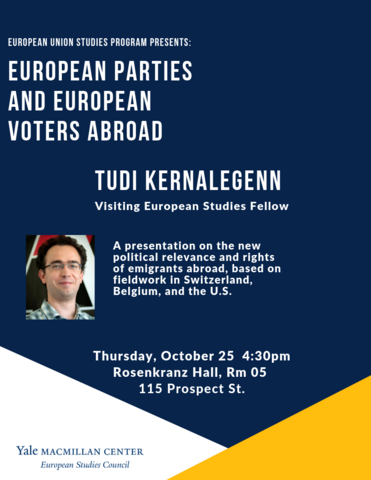Visiting Fellow in European Studies, Tudi Kernalegenn, will deliver a lecture on “European Parties and European Voters Abroad.” Dr. Kernalegenn’s research focuses on territorial politics and political parties with a qualitative and comparative approach, and expertise on French, British and Spanish politics.
With few exceptions, it is only recently that nation-states have begun to be politically concerned about their emigration, let alone giving their emigrants political rights. However, overseas voting is now a worldwide trend. In the last decade, several countries, including five member states of the European Union, have even given emigrants representative institutions and direct representatives in their parliament. This extension of the democratic sphere of established nation-states has created new structures of political opportunities for political actors, and notably for political parties, with the new political relevance of emigrants. Not only are votes to be gained, but in some countries, new positions of political power are even to be filled.
This presentation will explain how and why parties must therefore be studied “abroad”. The presentation will synthesize the results of a comparative fieldwork done in Switzerland, Belgium and the United States, studying comparatively how British, French and Spanish parties are active and organised among emigrants. The comparison is mainly based on two variables: the different political rights (and therefore political opportunities) and the socio-historical structure of British, French and Spanish emigrants abroad. After presenting the differentiated strength of parties and party systems abroad (which parties exist? with which membership and political strength? and why?), the presentation will explain their functions for emigrants: coordinating like-minded emigrants, conducting electoral campaigns, speaking for their supporters, etc.


